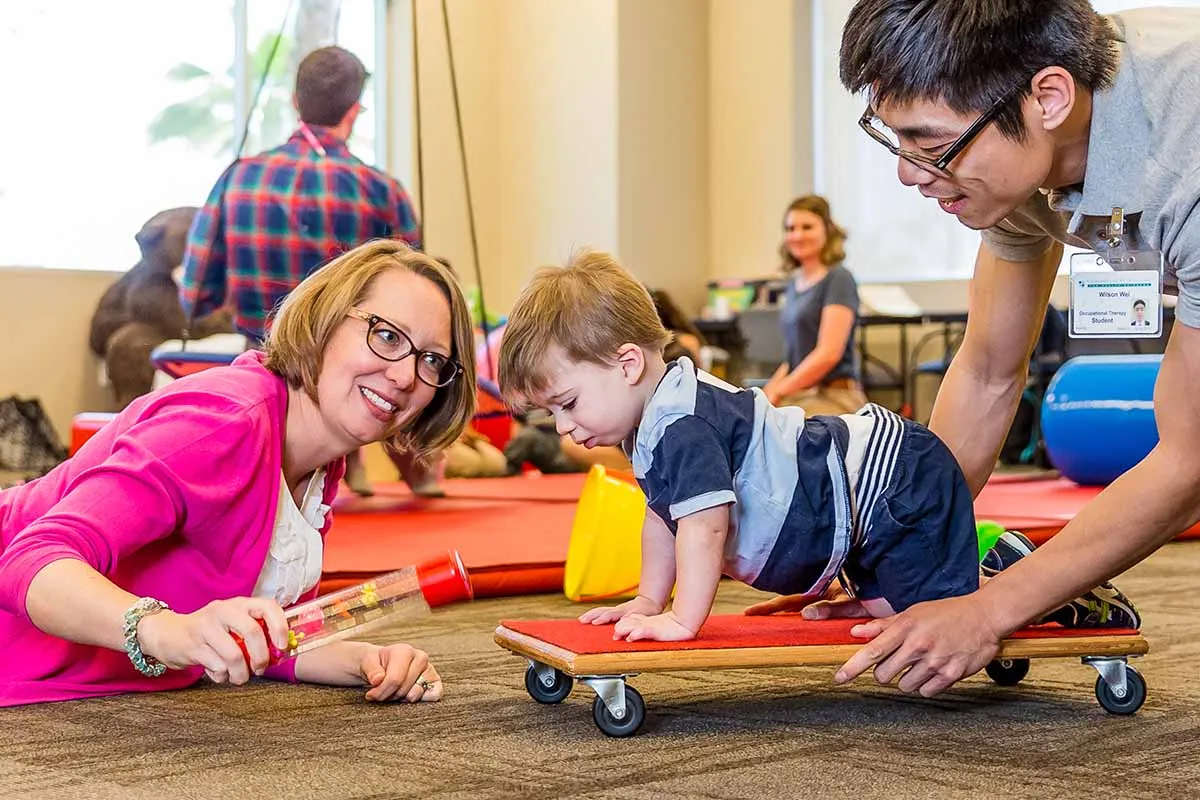Castle Hill Speech and OT: Supporting Kids Through Early Intervention
Early intervention is a critical aspect of child development, particularly for those who may face challenges in communication, social skills, and daily living activities. At Castle Hill Speech and Occupational Therapy (OT), dedicated professionals work tirelessly to provide tailored support to children, ensuring they reach their full potential. This article delves into the various facets of early intervention, the specific services offered at Castle Hill, and the importance of a multidisciplinary approach in supporting children and their families. Understanding Early Intervention Early intervention refers to a range of services and supports designed to assist children who exhibit developmental delays or disabilities. At speech therapy sydney, the primary goal is to identify and address these challenges as early as possible, ideally before the child reaches school age. Research has consistently shown that early intervention can significantly improve outcomes for children, enhancing their cognitive, social, and emotional development. In Australia, early intervention services are guided by the National Disability Insurance Scheme (NDIS), which aims to provide support for children with disabilities and their families. The focus is on creating an inclusive environment where children can thrive, regardless of their individual challenges. The Importance of Timely Support Research indicates that the first five years of a child’s life are crucial for brain development. During this period, children are particularly receptive to learning and development. By providing timely support, families can help their children develop essential skills that will serve them throughout their lives. For instance, children who receive speech therapy at an early age are more likely to develop effective communication skills, which are vital for social interaction and academic success. Similarly, occupational therapy can assist children in mastering daily living skills, fostering independence and self-confidence. Services Offered at Castle Hill Speech and OT Castle Hill Speech and OT offers a comprehensive range of services tailored to meet the unique needs of each child. These services include speech therapy, occupational therapy, and parent education programs, all designed to support children in their developmental journey. Speech Therapy Speech therapy focuses on improving a child’s communication skills, including speech, language, and social communication. At Castle Hill, speech therapists employ a variety of evidence-based techniques to assist children in overcoming challenges such as articulation disorders, language delays, and social communication difficulties. Therapists work closely with families to create personalised therapy plans that incorporate play-based activities, ensuring that sessions are engaging and enjoyable for children. This approach not only helps in skill acquisition but also fosters a positive attitude towards learning. Occupational Therapy Occupational therapy at Castle Hill is centred around helping children develop the skills necessary for daily living. This includes fine motor skills, sensory processing, and self-care tasks. Occupational therapists assess each child’s unique needs and create tailored interventions that promote independence and confidence. Through engaging activities, children learn to navigate their environment, improve their coordination, and develop essential life skills. For instance, therapists may use play-based interventions to help children learn how to dress themselves, manage personal hygiene, or engage in social activities. Parent Education and Support Recognising that parents play a crucial role in their child’s development, Castle Hill Speech and OT offers educational programs designed to empower families. These programs provide parents with the knowledge and tools necessary to support their child’s growth at home. Workshops may cover topics such as effective communication strategies, behaviour management techniques, and ways to create a supportive learning environment. By equipping parents with these skills, Castle Hill fosters a collaborative approach to early intervention, ensuring that children receive consistent support both in therapy and at home. The Multidisciplinary Approach One of the standout features of the services provided at Castle Hill is the multidisciplinary approach to early intervention. This involves collaboration among various professionals, including speech therapists, occupational therapists, psychologists, and educators, to provide comprehensive support for children. Benefits of a Collaborative Team A multidisciplinary team can offer a holistic view of a child’s needs, ensuring that all aspects of their development are addressed. For example, a speech therapist may identify a child’s communication difficulties, while an occupational therapist focuses on their fine motor skills. By working together, these professionals can create a cohesive intervention plan that targets multiple areas of development. This collaborative approach also benefits families, as they receive consistent messaging and strategies from a team of experts. It fosters a sense of community and support, allowing parents to feel more confident in their ability to help their child succeed. Case Studies and Success Stories Castle Hill Speech and OT has a wealth of success stories that highlight the effectiveness of early intervention. For instance, a child who struggled with speech delays was able to improve their communication skills significantly after just a few months of targeted therapy. With the support of their family and therapists, this child not only began to express themselves more clearly but also gained confidence in social situations. Another example involves a child with sensory processing difficulties who, through occupational therapy, learned to manage their sensory sensitivities. This intervention allowed them to engage more fully in everyday activities, from participating in school to enjoying family outings. How to Access Early Intervention Services Accessing early intervention services at Castle Hill is a straightforward process designed to ensure that families receive the support they need. The first step typically involves an initial assessment, where professionals evaluate the child’s developmental needs and discuss any concerns with the family. Initial Assessment Process The initial assessment is a comprehensive evaluation that may include standardised tests, observations, and discussions with parents about their child’s development. This assessment helps therapists understand the child’s strengths and areas for improvement, forming the foundation for a personalised intervention plan. Following the assessment, families receive a detailed report outlining the findings and recommendations for therapy. This report serves as a roadmap for the child’s intervention journey, ensuring that all parties are aligned in their goals and expectations. Funding and Support Options For families concerned about the financial aspects of early intervention, various funding options are available. The NDIS provides … Read more


